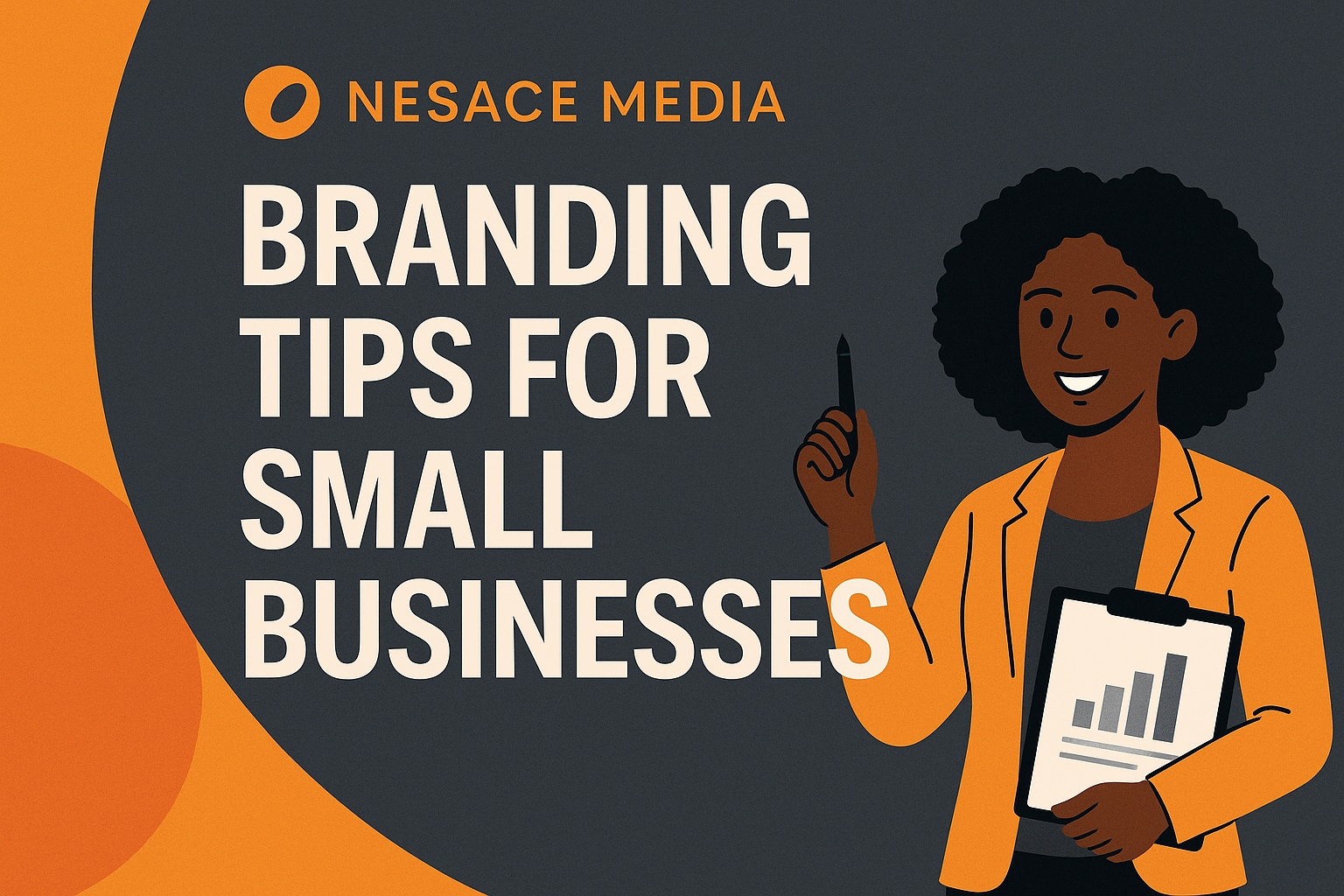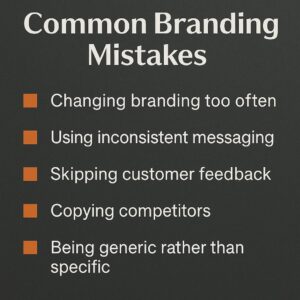Branding Tips for Small Businesses
Building a brand isn’t just for big companies with massive budgets. It’s essential for small businesses too. These branding tips for small businesses will help you stand out, build trust, and convert casual browsers into loyal customers. Whether you’re launching your first venture or revamping an existing identity, this guide will show you how to craft a brand that truly resonates with your audience.
Why Branding Matters for Small Businesses
Your brand is the personality of your business. It tells customers who you are, what you value, and why they should care. A clear, consistent brand can make even the smallest business look professional and trustworthy. Branding sets expectations and creates emotional connections.
“Think about your favorite local shop—chances are you associate it with a particular feeling or look. That’s the power of branding.”
Customers are more likely to choose a brand they recognize and trust. According to Forbes, consistent branding across all platforms increases revenue by up to 23%. That’s why branding is not a luxury—it’s a necessity.
Furthermore, branding provides clarity for both internal and external communications. Your team can better represent your company when they clearly understand its values and messaging. At the same time, customers will find it easier to engage with a brand that communicates clearly and consistently.
Your brand also impacts recruitment, partnerships, and investor interest. People want to align with businesses that have a strong identity and a clear direction.
Affordable Branding Strategies for Startups
Think you need a massive budget to brand your business? Think again. There are plenty of affordable branding strategies for startups that still pack a punch. Here’s how you can do more with less:
Free Tools to Use:
| Tool | Use Case |
|---|---|
| Canva | Design templates & visuals |
| Pexels | Free stock images |
| Looka | DIY logo design |
| Unsplash | High-res photography |
Tactics That Work:
- Use free design platforms for consistency
- Choose 2-3 colors and 1 font for brand identity
- Share your origin story to humanize your brand
- Repurpose testimonials into graphics
- Start a free blog to showcase thought leadership
Building trust and visibility is about being present and consistent, not about having the biggest ad budget.
How to Build a Brand Identity on a Budget
Your brand identity includes your visuals, voice, and values. Start by writing down your mission, values, and target audience. Ask:
- What do we stand for?
- Who are we serving?
- Why do we exist?
Use the answers to create a brand voice and mood board that reflects your vibe.
Budget Branding Checklist:
- [x] Defined mission and values
- [x] Selected 2-3 core brand colors
- [x] Font pairing that matches tone
- [x] Brand imagery or photo style
- [x] Social media templates
- [x] Basic brand style guide
Pro Tip: Start with a one-pager that outlines your visual and verbal identity. It keeps you focused and scalable.
Keep testing your brand’s effectiveness by asking new customers how they found you and what made them trust you.
Small Business Logo and Branding Advice
A well-designed logo makes a lasting impression. But it doesn’t need to cost a fortune.
Smart Logo Design Tips:
- Keep it simple (1–2 colors max)
- Test it at small sizes for legibility
- Use vector formats (.svg, .eps)
- Make sure it looks good on light and dark backgrounds
Budget Options for Logo Creation:
| Platform | Price Range | Notes |
|---|---|---|
| Fiverr | \$15–\$100 | Affordable freelance designers |
| Hatchful | Free | Great for temporary or starter logos |
| 99designs | \$\$\$ | Professional with multiple options |
Place your logo everywhere—from your email signature to your packaging. That repetition creates recognition.
DIY Branding Guide for Entrepreneurs
Doing your branding in-house? Start with a one-page brand guide that includes:
- Logo variations and usage
- Color hex codes
- Tone of voice with sample copy
- Fonts for headlines and body
- Do’s and don’ts for social media posts
Then build a content calendar to align your messaging across platforms. A little planning goes a long way in creating a unified brand presence.
Common DIY Branding Mistakes:
- Inconsistent fonts and tone
- Poor logo resolution
- Overuse of stock images without editing
- Confusing messaging across platforms
Solution: Use templates, plan ahead, and revisit your branding guide monthly.
Effective Local Branding Techniques for Small Businesses
To win locally, your brand must be visible offline and online. Start by making your presence felt in the community:
Local Branding Ideas:
- Sponsor local events or sports teams
- Join neighborhood Facebook groups
- Partner with local influencers
- Host free workshops or giveaways
Optimize Your Google Business Profile:
- Upload branded photos regularly
- Add FAQs and responses
- Request reviews from happy clients
- Link your posts and events
Chart: How Local Branding Impacts Growth
| Local Action | Customer Response |
|---|---|
| Sponsor event | Improved brand recall |
| Google profile optimized | Higher map search visibility |
| Consistent reviews | Increased trust and traffic |
| Local partnerships | Cross-promotion opportunities |
Avoid These Common Branding Mistakes
Even with the best intentions, it’s easy to slip up. Avoid these pitfalls:
- Changing branding too often
- Using inconsistent messaging
- Skipping customer feedback
- Copying competitors instead of being authentic
- Being generic rather than specific
“If your voice doesn’t match your visuals or your customer experience, the brand will feel disconnected.”
Always keep a pulse on what your customers are saying and how they’re interacting with your brand.
Branding Tools and Resources for Small Businesses
These tools streamline the branding process:
| Tool | Purpose | Cost |
|---|---|---|
| Canva | Design graphics | Free / Paid |
| Looka | Logo maker | Paid |
| Grammarly | Tone checker | Free / Paid |
| Later | Social content scheduling | Free / Paid |
| Notion | Brand asset organization | Free / Paid |
| Trello | Content planning | Free / Paid |
| Google Fonts | Web typography | Free |
| Mood board creation | Free |
Pick 2–3 tools and master them before adding more. Simplicity supports consistency.
Real-World Branding Success Stories
Case 1: A Hillsboro bakery increased foot traffic 3x by creating a pink-themed Instagram feed with behind-the-scenes stories and community tags.
Case 2: A lawn service branded its vans and employee uniforms, leading to a 40% increase in calls from neighbors who saw them in action.
Case 3: Nesace Media helped a tech startup craft a bold identity, run targeted SEO content, and get to page 1 on Google within 6 months.
Case 4: An online coach built a personal brand with just an iPhone, Canva, and consistent Instagram Reels. Her email list grew from 120 to over 2,000 in five months.
“Branding isn’t about looking fancy. It’s about being consistent, authentic, and relevant.” —Titonian Wallace Sr.
✅ Key Takeaways
- Branding builds trust and loyalty—even on a tight budget
- Local branding connects you with community customers
- Free tools like Canva and Google help you look pro
- Consistency is more powerful than perfection
- Use a style guide, even if you’re a solo founder
- Emotional storytelling creates memorable connections
- Small businesses can look polished with smart planning
Frequently Asked Questions (FAQs)
How can a small business start branding?
Start with a mission statement, logo, color scheme, and tone of voice. Use them consistently across all materials.
What are the best free branding tools?
Canva, Looka, Hatchful, Google Fonts, Pinterest, Grammarly, and Trello.
How long does it take to build a brand?
Branding is ongoing, but strong recognition usually forms in 3–6 months with consistent effort.
Is it okay to rebrand later?
Yes, but only do so with a strategic reason—like entering a new market or changing services.
How do I know if my branding is working?
Check engagement, customer feedback, and whether people can describe your business accurately when asked.
What should I include in a brand style guide?
Colors, fonts, logo usage, tone of voice, imagery examples, and social media guidelines.
Conclusion
Effective branding tips for small businesses go beyond logos and color palettes. Your brand is your story, your reputation, and your customer’s experience.
Be intentional. Be consistent. Be human. And if you want a partner to help you craft a brand that drives results, Contact Nesace Media.





